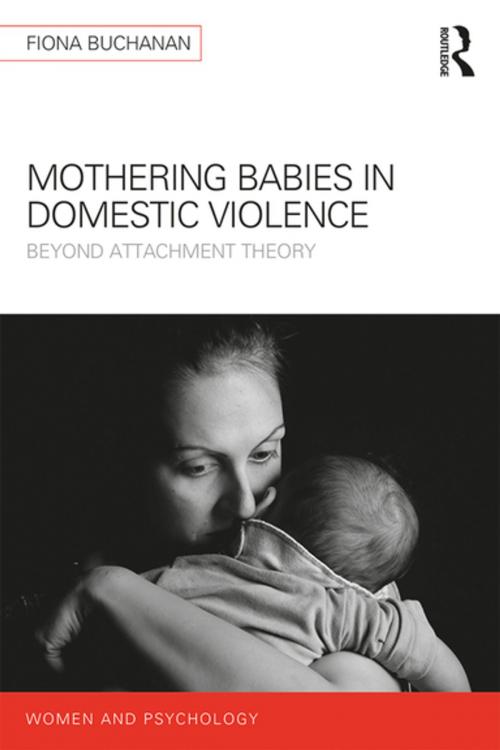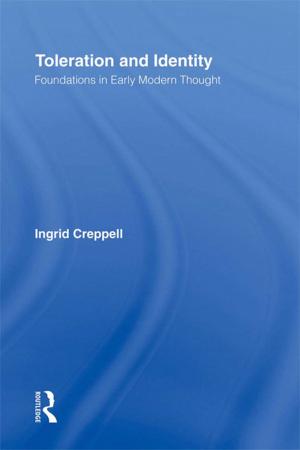Mothering Babies in Domestic Violence
Beyond Attachment Theory
Nonfiction, Health & Well Being, Psychology, Child & Adolescent, Child Development, Family & Relationships, Family Relationships, Abuse, Social & Cultural Studies, Social Science, Gender Studies, Women&| Author: | Fiona Buchanan | ISBN: | 9781317284673 |
| Publisher: | Taylor and Francis | Publication: | October 18, 2017 |
| Imprint: | Routledge | Language: | English |
| Author: | Fiona Buchanan |
| ISBN: | 9781317284673 |
| Publisher: | Taylor and Francis |
| Publication: | October 18, 2017 |
| Imprint: | Routledge |
| Language: | English |
This unique book offers an innovative feminist critique of attachment theory that offers an alternative understanding of relationships between women and their babies in domestic violence. Fiona Buchanan identifies a way forward for working with women, babies and people who have grown up with domestic violence focusing on strengths not deficits. In doing so, she raises new possibilities for work with women and babies in other situations where trauma impacts on their relationships.
In line with feminist traditions of listening to the voices of women, this book theorizes from research which asks women who birthed and mothered babies in domestic violence about their experiences. The research identifies that women respond with protectiveness when faced with sustained hostility from their partners and protected their babies in many ways not recognised by attachment theorists. However, sustained hostility often targets the growing relationship between women and their babies and limits space for the woman and baby to peacefully relate. This book offers deep insights and a new model for working with women, babies and those who have grown up with violence based on understanding the context of sustained hostility, appreciating women’s protectiveness and expanding space where women and babies can relate.
The author calls for practitioners across health and welfare settings to explore the situations in which women mother; women’s protective thoughts feelings and actions and how they find space to relate. This is the ideal resource for researchers, policy makers and practitioners, as well as women and people who grew up with domestic violence.
This unique book offers an innovative feminist critique of attachment theory that offers an alternative understanding of relationships between women and their babies in domestic violence. Fiona Buchanan identifies a way forward for working with women, babies and people who have grown up with domestic violence focusing on strengths not deficits. In doing so, she raises new possibilities for work with women and babies in other situations where trauma impacts on their relationships.
In line with feminist traditions of listening to the voices of women, this book theorizes from research which asks women who birthed and mothered babies in domestic violence about their experiences. The research identifies that women respond with protectiveness when faced with sustained hostility from their partners and protected their babies in many ways not recognised by attachment theorists. However, sustained hostility often targets the growing relationship between women and their babies and limits space for the woman and baby to peacefully relate. This book offers deep insights and a new model for working with women, babies and those who have grown up with violence based on understanding the context of sustained hostility, appreciating women’s protectiveness and expanding space where women and babies can relate.
The author calls for practitioners across health and welfare settings to explore the situations in which women mother; women’s protective thoughts feelings and actions and how they find space to relate. This is the ideal resource for researchers, policy makers and practitioners, as well as women and people who grew up with domestic violence.















